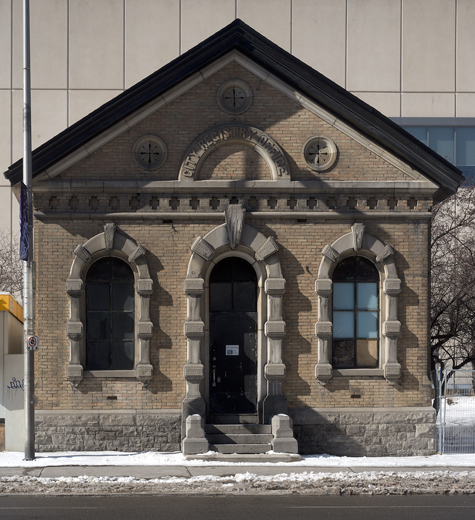Heritage, Like it or Not

In my last blog, I said that the motion passed by the City’s Planning Committee last week was not bad, but had some problematic implications. To recap: the committee accepted the list submitted by their staff for inclusion on the Heritage Register, but excluded properties whose owners objected, pending further consultation between those owners and staff. I guess this was a politically expedient solution, as it sent as few people home angry as possible, and avoided lurid headlines. But what might this further consultation actually mean?
Buildings are listed on the Heritage Register because they have architectural qualities that are of heritage interest. At least, that’s the way it’s supposed to be. But most of the property owners who asked to have their properties removed from the Register weren’t disputing that their buildings had heritage value. They were simply saying that they didn’t want their buildings to be on the Register, whether they merited inclusion or not.
That doesn’t pass the smell test. Whether or not my house merits inclusion on the Register should depend on whether it meets that list’s criteria – not on whether I want it to or not, or whether I think it serves my self-interest, or whether my friends tell me it’s a good or bad thing to be on the list. My house either fits the bill or it doesn’t; it’s a matter of fact, not opinion.
It’s unclear what might come of this ‘further consultation’ between property owners and City staff. What is there to be discussed? If the staff has included a building because it has, say, limestone lintels with emphasized keystones above the windows, is the owner going to argue that the lintels aren’t actually there?
But I don’t actually think that matters of fact are the issue. Judging from what I heard at Planning Committee last week, the majority of the arguments will be along the lines of, “I think my building should be removed from the register, because I don’t want it there.” If the City capitulates to this, the Register won’t be worth the electrons it’s stored on – and certainly won’t be an effective tool for making sound, fact-based decisions. It’s meant to be a comprehensive, transparent, dispassionate database; a stock-taking of Ottawa’s heritage assets. Making it essentially voluntary would be a lot like abolishing the mandatory long-form census.
So why do some property owners want to opt out? Pretty much without exception, it’s because they’re afraid that being on the register will drive their property values down. But do the facts back this up? No, they don’t – and that will be the subject of my next blog.
Peter Coffman
peter.coffman@carleton.ca